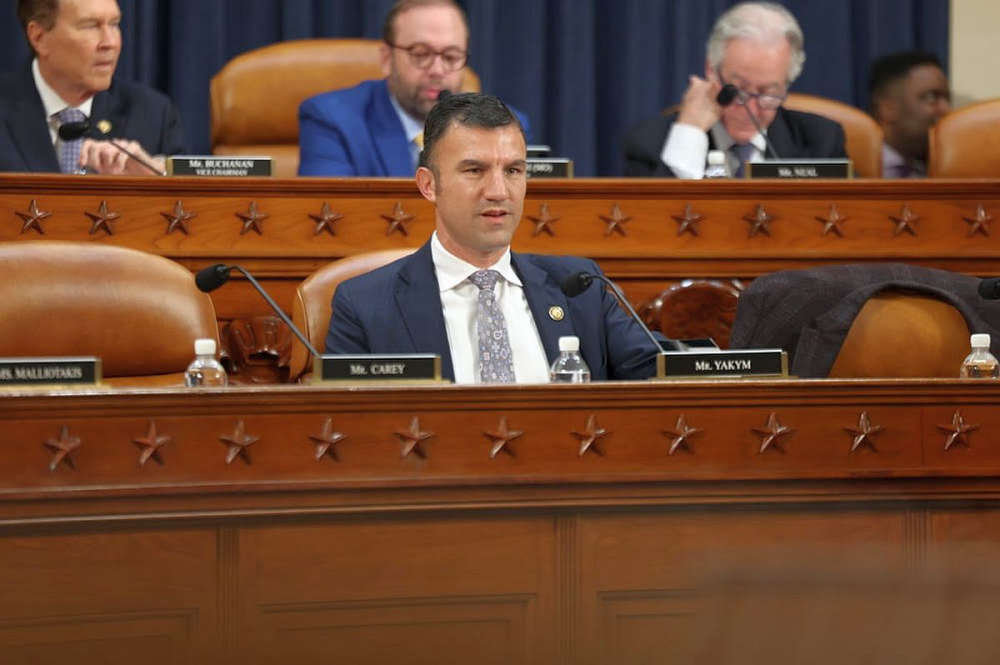News
Wednesday, U.S. Senators Todd Young (R-Ind.) and John Thune (R-S.D.) sent a letter to U.S. Trade Representative Katherine Tai and U.S. Department of Agriculture Secretary Tom Vilsack urging them to increase U.S. agricultural exports and improve the competitiveness of U.S. products abroad.
“We expect trade to fluctuate in response to macroeconomic factors and market conditions,” wrote the senators. “However, the current sharp decline in U.S. agricultural exports is directly attributable to and exacerbated by an unambitious U.S. trade strategy that is failing to meaningfully expand market access or reduce tariff and non-tariff barriers to trade. While the Biden administration continually refuses to pursue traditional free trade agreements, China, Canada, the European Union, the United Kingdom, and others continue to ink trade pacts that diminish American export opportunities and global economic influence.”
The letter was also signed by U.S. Senators Marsha Blackburn (R-Tenn.), Ted Budd (R-N.C.), Kevin Cramer (R-N.D.), Steve Daines (R-Mont.), Joni Ernst (R-Iowa), Deb Fischer (R-Neb.), Chuck Grassley (R-Iowa), John Hoeven (R-N.D.), Ron Johnson (R-Wis.), James Lankford (R-Okla.), Roger Marshall (R-Kan.), Jerry Moran (R-Kan.), Pete Ricketts (R-Neb.), Jim Risch (R-Idaho), Mike Rounds (R-S.D.), Tim Scott (R-S.C.), Thom Tillis (R-N.C.), and Tommy Tuberville (R-Ala.).
The full letter can be found below:
Dear Ambassador Tai and Secretary Vilsack:
We write to express deep concern with the continued erosion of critical markets for U.S. agricultural exports. For decades, the United States steadily increased market access for U.S. food and agricultural products. We accomplished this feat through negotiations of actual free trade agreements, removal of technical barriers to trade, and holding our trading partners accountable to their commitments, all of which have helped strengthen the agriculture economy at home and developed important strategic relationships abroad. Yet, in the last fiscal year (FY) alone, U.S. agricultural exports declined by more than $17 billion, and recent forecasts show a further decline by more than $8 billion in FY 2024. As a result, the U.S. agricultural trade deficit is projected to reach a record $30.5 billion in FY 2024. This decline is unsustainable, and we urge the Biden administration to immediately take action to improve the competitiveness of U.S. agricultural products abroad and reverse this trend.
We expect trade to fluctuate in response to macroeconomic factors and market conditions. However, the current sharp decline in U.S. agricultural exports is directly attributable to and exacerbated by an unambitious U.S. trade strategy that is failing to meaningfully expand market access or reduce tariff and non-tariff barriers to trade. While the Biden administration continually refuses to pursue traditional free trade agreements, China, Canada, the European Union, the United Kingdom, and others continue to ink trade pacts that diminish American export opportunities and global economic influence.
International trade is critical to the continued success of U.S. agriculture. For the 2023 marketing year, nearly 70 million acres of major crops like corn, soybeans, and wheat were planted to meet the demands of our foreign customers. Additionally, more than 95 percent of U.S. cotton produced, nearly 80 percent of almonds produced, and more than 70 percent of nonfat milk powder produced were destined for the export market in 2023. And in a typical year, half of U.S.-produced rice and 20 percent of U.S.-produced potatoes are exported. Diminishing access to foreign agricultural markets for U.S. industries creates significant economic headwinds and jeopardizes the livelihoods of more than one million American workers, farmers, and ranchers, as well as millions more U.S. jobs throughout the export supply chain.
With our concerns in mind, please respond to the following questions within 14 days of your receipt of this letter.
What specific actions does the Biden administration plan to take to increase U.S. agricultural exports in 2024? Does the Biden administration intend to pursue new or improved free trade agreements with any countries to obtain new market access for agricultural products in 2024?We further ask the Biden administration to take steps to analyze and consider the relationship between U.S. competitiveness and market share in foreign agricultural markets with negotiated tariffs, tariff rate quotas, and other market access provisions.
A continued decline in U.S. agricultural exports is avoidable and unacceptable. The Biden administration must take immediate action to ensure this does not become a long-term trend. Thank you for your prompt attention to this important matter.
Sincerely,


 U.S. Rep. Yakym’s bipartisan BARCODE Efficiency Act Advances
U.S. Rep. Yakym’s bipartisan BARCODE Efficiency Act Advances
 Applications available for Indiana Sheriffs' Association college scholarships
Applications available for Indiana Sheriffs' Association college scholarships
 Parke County RDC closes on the purchase of the former Rockville National Bank Building
Parke County RDC closes on the purchase of the former Rockville National Bank Building
 Deadline approaching for blind, disabled Hoosiers and seniors to receive property tax credits
Deadline approaching for blind, disabled Hoosiers and seniors to receive property tax credits
 One Night, One Cause: Indiana FFA needs your support for their ‘Blue and Gold Gala’
One Night, One Cause: Indiana FFA needs your support for their ‘Blue and Gold Gala’
 Gov. Braun secures National Drone Test Site Designation for Indiana
Gov. Braun secures National Drone Test Site Designation for Indiana
 ISP with Human Trafficking Awareness Initiative this week
ISP with Human Trafficking Awareness Initiative this week
 Rockville Town Board shuffles up leadership positions
Rockville Town Board shuffles up leadership positions
 Political candidates can begin filing this week
Political candidates can begin filing this week
 Historic sites bill passes out of committee
Historic sites bill passes out of committee
 More than one-third of Christmas tree home fires occur in January
More than one-third of Christmas tree home fires occur in January
 Temporary visitation restrictions enacted by Union Health due to uptick in respiratory virus cases
Temporary visitation restrictions enacted by Union Health due to uptick in respiratory virus cases
 Reps. Heaton, Yocum: Indiana House accepting student applicants for 2026 page program
Reps. Heaton, Yocum: Indiana House accepting student applicants for 2026 page program
 VCCF awards $2,500 grant to support Free Laundry Day Program
VCCF awards $2,500 grant to support Free Laundry Day Program




